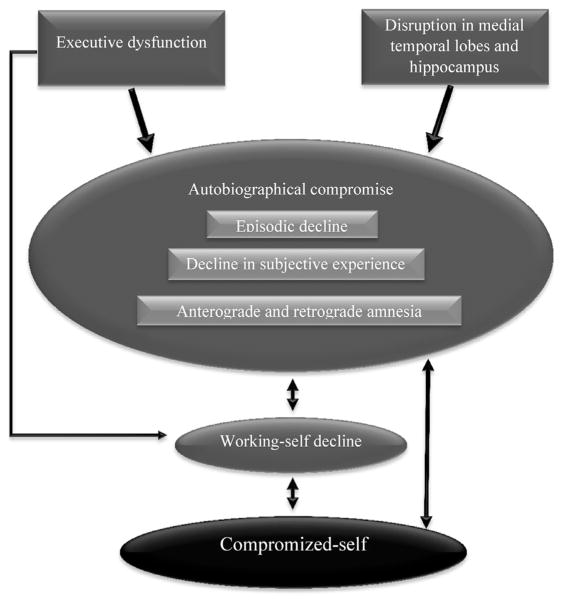Fig. 1.
According to our model (AMAD: Autobiographical Memory in Alzheimer’s Disease), the autobiographical compromise in Alzheimer’s disease (AD) is mainly characterized by a substantial loss of episodic information, weakened ability to mentally relive past events, and anterograde and retrograde amnesia. This autobiographical declineresults in a limited access to memories that shape self-consciousness, self-knowledge, and self-images, a limitation that leadsto a diminished sense of identity. The link between autobiographical decline and compromised-self in AD can also be attributed to disruption in the working-self, a disruption that can be connected to executive dysfunction. One consequence of the working-self disruption is low correspondence and coherence between autobiographical memory and current goals and believes of the self.

